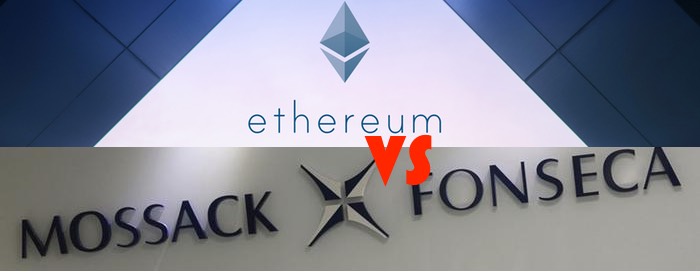Ethereum vs Mossack Fonseca: Trusts without Trustees
Published April 7th, 2016 edit replace rm!

If you haven't read the first article in this series I recommend you go read it first: Ethereum vs Mossack Fonseca: The IBC and it’s blockchain alternatives
Trusts are an ancient contract structure going back to Roman days. A trust is used to separate control from the benefits of an asset.
Traditionally a trust is used by a rich father to ensure that his wealth is not spent away by his no-good spendthrift kids.
The parties to a Trust are traditionally:
- The Settlor or Grantor (i.e. Rich Dad)
- The Trustee (i.e. Mossack & Fonseca)
- The Beneficiaries (the Dom Perignon loving Kids)
The Dad grants all or most of his wealth into the trust. This is generally done while he is still alive to avoid inheritance tax.
The Trustee now has control of the funds, but must follow instructions in the original Trust agreement.
The trustee manages the wealth. Invests it for example. Then according to the Trust agreement typically pays out a sum to each beneficiary on a regular basis.
Since a Trust is not a separate entity the Settlor still owns the assets according to at least US law. But he does not have control over it.
You need a trustworthy Trustee
The most important part of creating a trust is to have a trustworthy stable trustee. The trustees are normally licensed Trust Companies or simply just lawyers.
Since you're likely assigning most of your wealth to the Trustee to manage for several generations it is extremely important to pick a solid Trust Company, which is one of the reason that firms like Mossack Fonseca have so many clients. Banks, other lawyers, friends have recommended them for years.
No solid firm would do this of course, but a crooked firm you found on the internet could easily steal your fortune and you would have a very hard time getting a hold of it again.
Asset Protection Trusts
Asset Protection Trusts have been one of the most popular forms of offshore trusts in recent years and for good reason.
This feature that the Settlor does not have control over his own funds is one of the important features of a Trust. Apart from the traditional Family Trust scenario above, they are mostly used for Asset Protection now a days.
For example if the settlor is sued for divorce, bankruptcy, serving too hot coffee or whatever a judge may require him to pay the $10 million punitive damages.
Trust agreements are often written in such away that the Trustee can not hand over the funds, no matter how much the Settlor pleas to the trustee. This is in particular why offshore trusts are used instead of onshore trusts. An onshore trustee could probably be forced to payout anyway.
An fun fact is that trustees are traditionally British nationals as they are deemed most trustworthy.
US citizens are often deemed least trustworthy as trustees. Not sure how true this is but I hear that they were often picked up on arrival in Miami going home for Thanksgiving from the Cayman Islands and pressured into complying.
Trust like Smart Contracts
Trusts are pretty simple to model as smart contracts, as long as they don’t have to do all kinds of smart investing strategy. The equivalent to a simple family trust could be created like this:
contract Trust {
address settlor;
address[] benificiaries;
uint nextPayout;
uint payoutPeriod;
function Trust(address[] _benificiaries,uint period) {
settlor = msg.sender;
benificiaries = _benificiaries;
payoutPeriod = period;
nextPayout = now + payoutPeriod;
}
// Any one can request that a payout is done
function payout() {
if (now < nextPayout) throw; // No payout performed before it's due
var payout = this.balance/10; // always payout 10% of balance
var individualPayout = payout/benificiaries.length;
for(uint i = 0; i < benificiaries.length ; i++) {
benificiaries[i].send(individualPayout);
}
}
}
This simple example assumes the assets being settled are in Ether. The settlor can send the funds on creation and continue to add to it as he pleases.
Once the Ether enters the trust 10% of it’s value is split evenly between all the beneficiaries and sent to them once a payout is requested.
What is missing from this Trust SmartContract? Yes the Trustee. The Trustee is replaced by the Ethereum network itself.
There is no longer a need to trust someone with a posh English accent and a solid tan not to fly back to the UK via Miami.
The Ethereum network itself can not be held in contempt of court. Neither you nor the beneficiaries hold control over the funds. Just like a regular trust I would expect (I am not a lawyer just an innocent coder ok!!!) the settlor to retain the taxable ownership of the funds.
Who pays capital gains on payout is something probably no one has thought about before now, so I have no inkling of a clue if that would be the settlor or beneficiary or both.